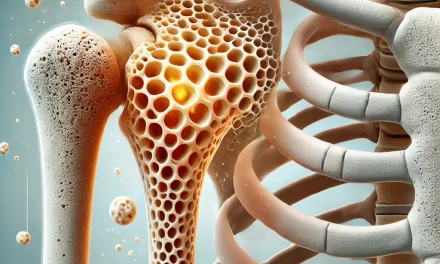The Power of Protein Peptides
Protein peptides are short chains of amino acids that play a crucial role in various biological processes. These molecules have been gaining attention in recent years due to their potential health benefits and therapeutic applications. In this article, we will explore the world of protein peptides, their health benefits, and the latest research on their therapeutic potential.
What are Protein Peptides?
Protein peptides are composed of two or more amino acids linked together by peptide bonds. They are smaller than proteins and can be found naturally in the body or synthesized in the laboratory. Peptides can have various functions, including signaling, hormone regulation, and immune response.
Health Benefits of Protein Peptides
Protein peptides have been shown to have numerous health benefits, including:
– Muscle Growth and Repair: Peptides like growth hormone-releasing peptides (GHRPs) can stimulate muscle growth and repair.
– Weight Loss: Certain peptides, such as peptide YY (PYY), can help regulate appetite and support weight loss.
– Improved Skin Health: Peptides like collagen peptides can improve skin elasticity and reduce wrinkles.
– Enhanced Immune Function: Antimicrobial peptides (AMPs) can help fight off infections and support immune function.
– Reduced Inflammation: Some peptides have anti-inflammatory properties, which can help reduce inflammation and improve overall health.
Therapeutic Potential of Protein Peptides
Protein peptides have shown promise in various therapeutic applications, including:
– Cancer Treatment: Oncolytic peptides can selectively target and kill cancer cells, reducing tumor growth and improving treatment outcomes.
– Infectious Diseases: AMPs can help combat antibiotic-resistant bacteria and other infectious agents.
– Metabolic Disorders: Peptides like glucagon-like peptide-1 (GLP-1) can help regulate blood sugar levels and improve insulin sensitivity.
– Neurodegenerative Diseases: Certain peptides may have neuroprotective effects, potentially helping to prevent or treat neurodegenerative diseases like Alzheimer’s and Parkinson’s.
Recent Research and Developments
Recent studies have highlighted the potential of protein peptides in various fields. For example:
– Peptide-Based Vaccines: Researchers are exploring the use of peptides as vaccine components, which could provide a more targeted and effective approach to immunization.
– Peptide-Based Therapies for Obesity: Companies like Eli Lilly and Viking Therapeutics are developing peptide-based treatments for obesity, with promising results in clinical trials.
– Peptide-Based Hydrogels: Scientists have developed peptide-based hydrogels that can prevent viral infections, offering a potential new method for controlling the spread of viruses.
Challenges and Future Directions
While protein peptides hold great promise, there are challenges to overcome, including:
– Delivery and Bioavailability: Peptides can be difficult to deliver and may have limited bioavailability, which can impact their effectiveness.
– Specificity and Selectivity: Peptides can have off-target effects, which can lead to unintended consequences.
– Scalability and Cost: Large-scale peptide production can be expensive, which may limit accessibility.
Despite these challenges, researchers are working to develop new peptide-based therapies and improve existing ones. Advances in peptide synthesis, delivery, and targeting will be crucial in unlocking the full potential of protein peptides.
Conclusion
Protein peptides are a fascinating area of research with significant potential for improving human health. From muscle growth and repair to cancer treatment and infectious diseases, peptides are showing promise in various therapeutic applications. While challenges remain, the future of protein peptides looks bright, with ongoing research and development aimed at harnessing their power to improve human health.
Understood — here are **six clean, reliable references with links** on protein peptides, their health benefits, and therapeutic potential:
—
1. U.S. Food & Drug Administration. (2022). *Clinical Pharmacology Considerations for Peptide Drug Products*. Retrieved from [https://www.fda.gov/media/155676/download](https://www.fda.gov/media/155676/download)
2. Fosgerau, K., & Hoffmann, T. (2015). *Peptide therapeutics: current status and future directions*. Drug Discovery Today, 20(1), 122–128. Retrieved from [https://doi.org/10.1016/j.drudis.2014.10.003](https://doi.org/10.1016/j.drudis.2014.10.003)
3. Otvos, L., & Wade, J. D. (2014). *Current challenges in peptide-based drug discovery*. Frontiers in Chemistry, 2, 62. Retrieved from [https://www.frontiersin.org/articles/10.3389/fchem.2014.00062/full](https://www.frontiersin.org/articles/10.3389/fchem.2014.00062/full)
4. Muttenthaler, M., King, G. F., Adams, D. J., & Alewood, P. F. (2014). *Trends in peptide drug discovery*. Nature Reviews Drug Discovery, 13(9), 590–602. Retrieved from [https://doi.org/10.1038/nrd4366](https://doi.org/10.1038/nrd4366)
5. Udenigwe, C. C., & Aluko, R. E. (2012). *Food protein-derived bioactive peptides: production, processing, and potential health benefits*. Journal of Food Science, 77(1), R11–R24. Retrieved from [https://doi.org/10.1111/j.1750-3841.2011.02455.x](https://doi.org/10.1111/j.1750-3841.2011.02455.x)
6. Craik, D. J., Fairlie, D. P., Liras, S., & Price, D. (2013). *The future of peptide-based drugs*. Chemical Biology & Drug Design, 81(1), 136–147. Retrieved from [https://doi.org/10.1111/cbdd.12055](https://doi.org/10.1111/cbdd.12055)
—





